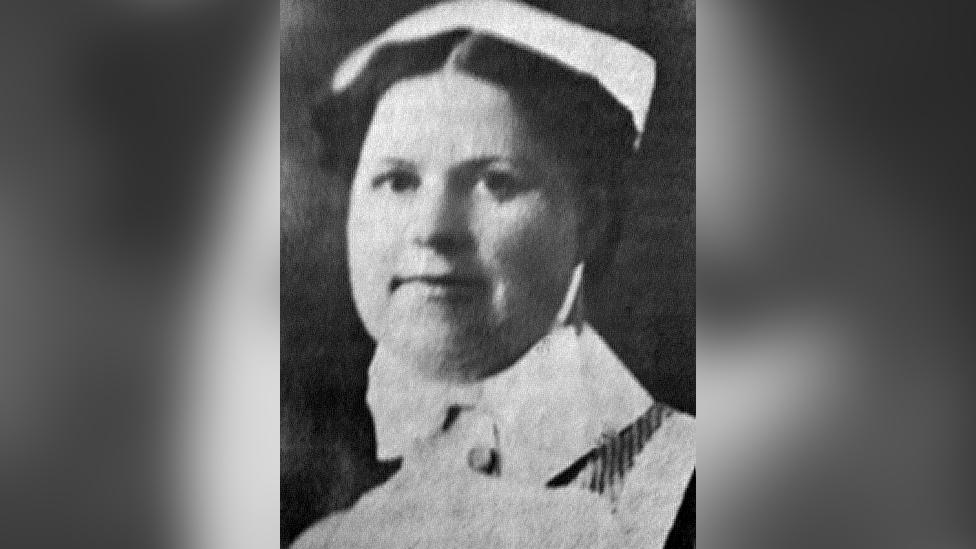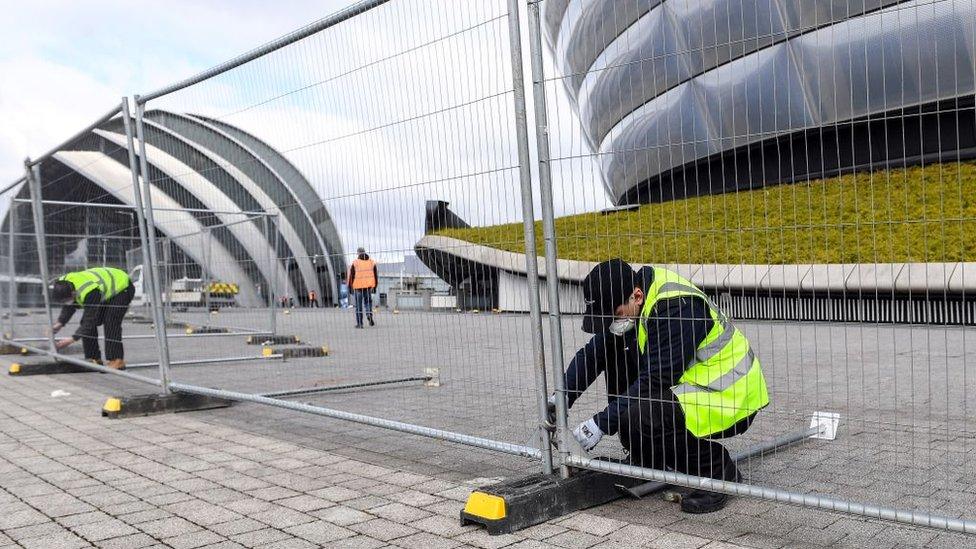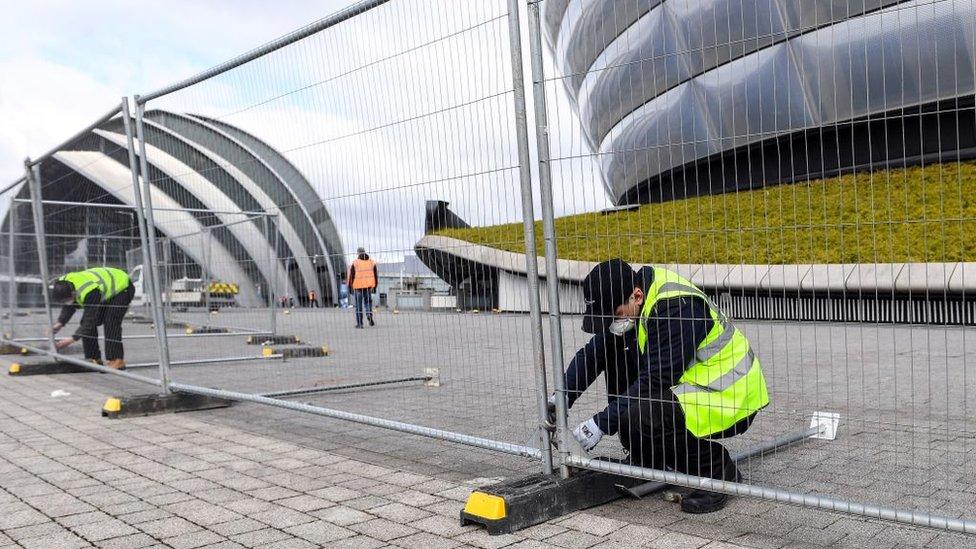Coronavirus: Scotland's temporary hospital to be named after Louisa Jordan
- Published

Louisa Jordan died at the age of 36 from typhus which spread across Serbia
She gave her life working on the front line of an epidemic that spread with such ferocity, it infected more than 1,500 people a day.
Louisa Jordan is one of Scotland's treasured nurses.
Her career was brief, cut short at age 36 - her final post was tending to wounded soldiers in Serbia in 1915, during the height of a typhus outbreak.
The people of Serbia gather each year to commemorate her courage and sacrifice, as well as that of her colleagues.
Now she will be honoured in her home city, as a temporary hospital designed to fight the coronavirus will be named NHS Louisa Jordan.
A similar facility in London has been named after Florence Nightingale.
Allow X content?
This article contains content provided by X. We ask for your permission before anything is loaded, as they may be using cookies and other technologies. You may want to read X’s cookie policy, external and privacy policy, external before accepting. To view this content choose ‘accept and continue’.

Health Secretary Jeane Freeman said Sister Jordan had "served with great bravery and distinction".
She said: "She is a person who has perhaps up until now been better remembered in Serbia than in Scotland. This hospital is a fitting tribute to her service and her courage."
Sister Jordan was born in Maryhill, Glasgow in 1878 - 50 years before the invention of the ventilator.
Her nursing experience was varied, and worked at the Shotts Fever Hospital in Lanarkshire and at the poor law hospital in Manchester before joining the war effort.

The hospital at the SEC will be named NHS Louisa Jordan
In December 1914 she signed up with the Scottish Women's Hospitals for Foreign Services while working as a Queen's nurse in Buckhaven, Fife.
During the Serbian epidemic, which is estimated to have claimed 150,000 lives in six months, Sister Jordan was in charge of a new fever ward at the SWH unit in Kragujevac.
Many doctors died and others were too sick to treat patients.
Spread by mites, lice or fleas, typhus thrives in filthy, overcrowded conditions - though is now treatable if discovered quickly.
While nursing one of her colleagues, Sister Jordan kept a diary and recorded that "hardly a day passes but there is one or two funerals here".
She died from typhus a few days later aged 36.
Her name, alongside several others, is inscribed on an organ in Wilton Parish Church in Glasgow - remembering members of the congregation who gave their lives during World War One.
She is also commemorated on the Buckhaven War Memorial.
- Published1 April 2020
